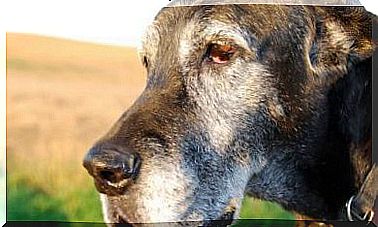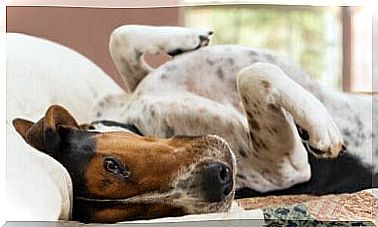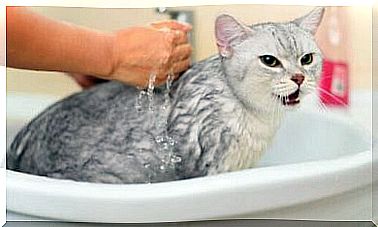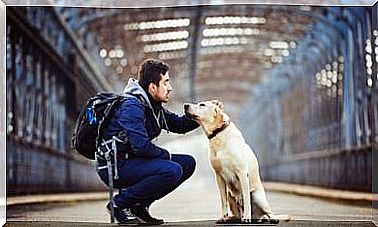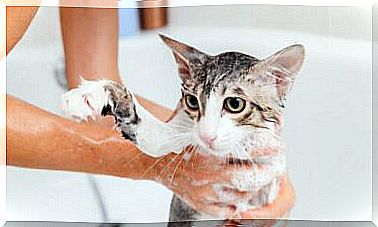The Cause Of Stress In Dogs

Dogs do develop many human pathologies. Mainly because they are also affected by characteristic phenomena of modernity, such as noise, the hectic pace of life or absentee owners, among other things, it is increasingly common to find cases of stress in dogs.
Dogs develop stress in different situations, which can be environmental, social or due to illness. A good way to control stress levels in your pet is to determine what is causing it.
Here are some items that can help you identify the cause of stress in dogs:
loud noises
Holiday periods, especially Christmas, are usually the phases when pets feel the most stressed, due in large part to the movement of people, travel and especially fireworks.
In fact, December is the month when the most pets are lost. However, some pets tolerate noise better than others, and this depends a lot on the owner’s management in situations like this, to which the pet has been exposed throughout its life.
Loud noises, whistles, explosions, etc., g were panic attacks in dogs because they do not associate certain noises (eg fireworks) with something known.
Also, bearing in mind that dogs’ ears are much more sensitive and keen, when faced with an unexpected sound, it is natural for them to be afraid.
However, as an owner, you can take certain steps to make your dog better tolerate noise, for example, during fireworks, be with him at all times for as long as the noise lasts, and then reward him for good behavior with snacks or caresses.
Do this only when he is calm. Ideally, you should expose animals from puppies to loud sounds. This way they will know how to control fear.
separation anxiety

Separation anxiety is the feeling that an animal or person has been abandoned as soon as the owner leaves the house.
This is a problem that can seriously affect a pet’s health and harmony, as it manifests itself through urination in the wrong areas, destruction of furniture and objects, or an excessively nervous attitude on the part of the dog.
This disease is very common in dogs with a history of abuse or neglect. However, this can be managed through education, leaving you alone for only short periods of time and returning after a few minutes.
Remember that you should never leave a dog alone for a long period of time if he is not used to it, as this can alter your dog’s behavior when you are not present.
Another thing you can do is adopt another pet so that the dog does not get bored in moments of solitude, but only if this is within your possibilities as an owner.
When anxiety episodes are very severe, it is best to consult a canine behavior specialist so that he can give you some guidance on how to manage the situation.
a tense atmosphere
Dogs are experts at reading their owners’ body language. Therefore, they tend to notice the changes that alter the peace at home and this ends up affecting them.
An environment where there is violence, constant arguments, noise or stress is not good for a dog, because these factors stress him.
In the same way as changes in its environment, such as a change of residence, this tends to represent a situation of high stress for the dog, especially as he will have to adapt to a new space with other objects, odors, noises, etc. .
Veterinary visits
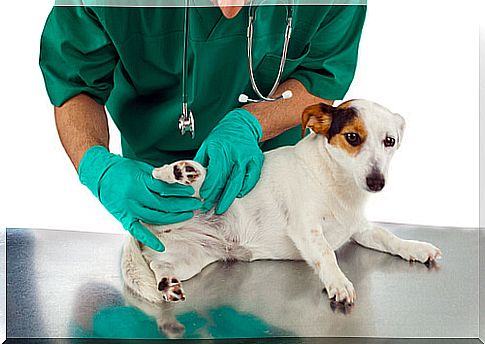
The veterinarian is to dogs what the dentist is to many children. This is because dogs equate visiting the vet with unpleasant, or at least painful, experiences (eg, vaccinations or when they are sick).
Likewise, the tests they undergo at the veterinarian make them feel uncomfortable, which is why they don’t like it.
Being in a strange environment and surrounded by other animals who are nervous also helps to increase the stress level in your pet, who feels scared. It’s basically fear of the unknown.
In this case, you should reward him when he’s calm and avoid petting when he’s overly nervous. He may bite you, because caressing him at these times, you only reinforce the aggressive behavior.

